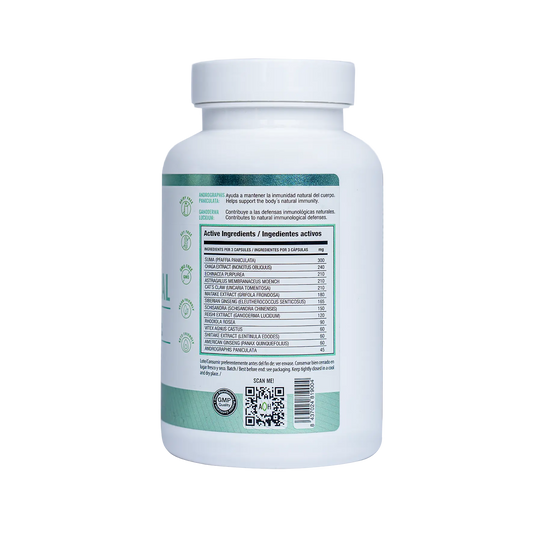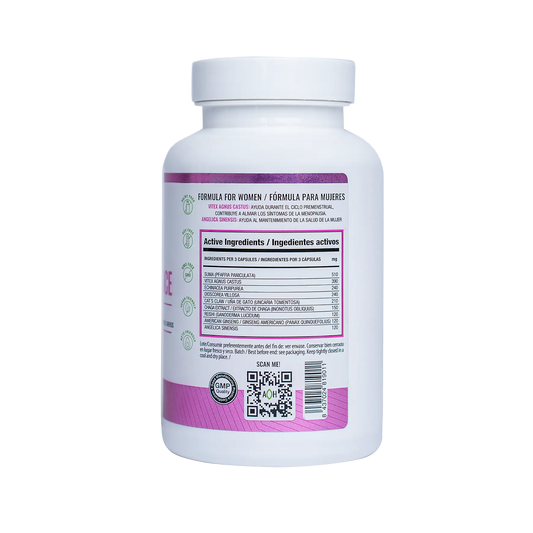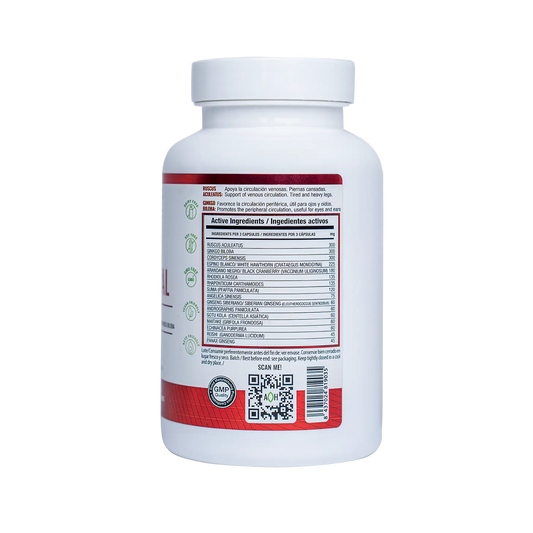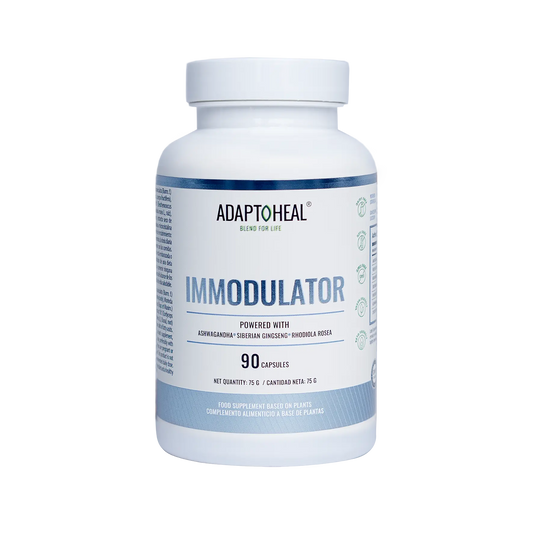Everything you need to know about your mitochondria
Mitochondria, tiny but powerful structures within our cells, play a critical role in our health and well-being. Often referred to as the "power plants" of our cells, mitochondria are responsible for producing the energy necessary to maintain all of the body's vital functions.
Mitochondria are specialized organelles found inside our cells and are surrounded by a double membrane. Its main function is to generate adenosine triphosphate (ATP), the main source of energy used by our cells to carry out a variety of biological functions, from muscle contraction to protein synthesis and cellular communication.
How do mitochondria work?
The process by which mitochondria generate ATP is known as cellular respiration. During this process, mitochondria use nutrients such as glucose and fatty acids as fuel to produce ATP through a series of complex chemical reactions. This process takes place in two main stages: glycolysis, which takes place in the cytosol of the cell, and aerobic respiration, which occurs within the mitochondria.
Importance of mitochondria for human health
Mitochondria play a crucial role in a wide range of biological processes and are essential for maintaining the overall health and well-being of the body. Some of the important functions of mitochondria include:
- Energy Production: As mentioned above, mitochondria are responsible for generating most of the energy used by our cells. This energy is necessary for all cellular functions, from pumping ions across cell membranes to synthesizing important molecules.
- Regulation of metabolism: Mitochondria play a crucial role in regulating cellular metabolism by controlling nutrient breakdown and energy production. Additionally, mitochondria are involved in regulating the balance of calcium and other ions within the cell.
- Cellular apoptosis: Mitochondria are also involved in cell apoptosis, a programmed process of cell death that is essential for the development and maintenance of healthy tissues. Mitochondria release certain proteins that trigger apoptosis when the cell is damaged or stressed.
- Generation of free radicals: While mitochondria are vital for energy production, they can also generate free radicals as a byproduct of cellular respiration. Free radicals are highly reactive molecules that can damage cellular structures and contribute to aging and the development of diseases.
How to care for and support your mitochondria
Given their critical role in cellular health and overall well-being, it is important to care for and support the function of our mitochondria. Some strategies to maintain mitochondrial health include:
- Balanced diet: Eating a diet rich in essential nutrients, including vitamins, minerals and antioxidants, can provide mitochondria with the resources they need to function optimally.
- Regular exercise: Regular exercise can help improve mitochondrial function by stimulating the production of new mitochondria and improving the efficiency of the energy generation system.
- Stress reduction: Chronic stress can negatively impact mitochondrial health by increasing the production of free radicals and triggering inflammatory responses. Practicing stress management techniques, such as meditation and yoga, can help protect mitochondrial health.
- Supplementation: Some supplements, such as antioxidants and specific nutrients such as coenzyme Q10 and alpha-lipoic acid, can help support mitochondrial function and protect against oxidative damage.
Optimize your energy with Energyheal!
If you are looking to support the function of your mitochondria and increase your vitality and energy, consider trying Energyheal. Formulated with natural ingredients and designed to support mitochondrial health and cellular energy production, Energyheal can be a valuable addition to your wellness regimen.
Take the first step towards a more energetic and healthy life today!












